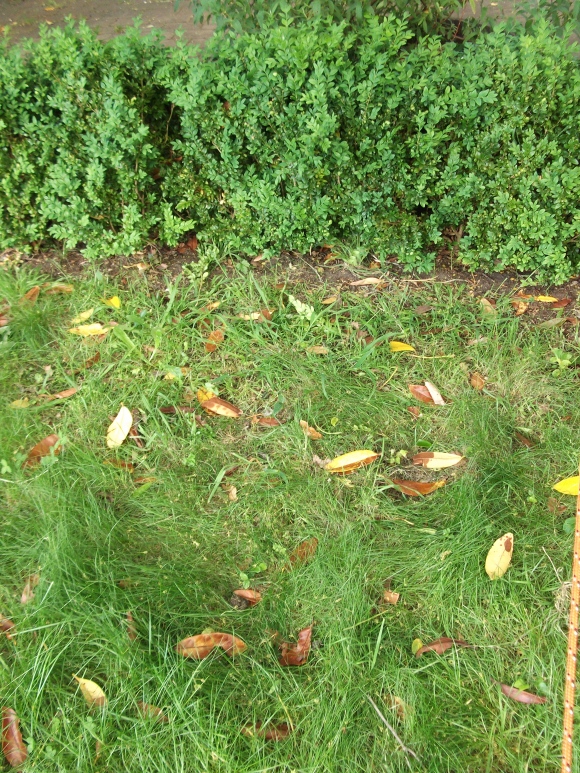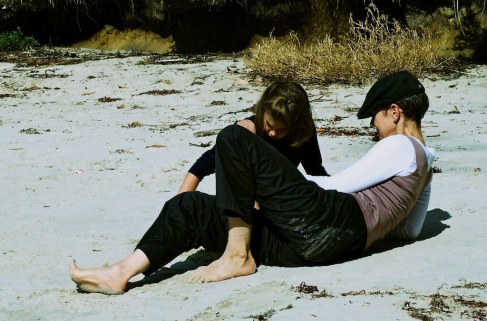making friends with facebook
Alex went to bed late, as usual. John my husband was in Canberra, having spent the afternoon stalking the halls of power – which he described on the phone as remarkably empty. Emma was in bed hours ago. I looked at the clock in the kitchen. Too late to start work, but too early for bed.
I’ll just check my updates, I thought, and then head up to bed. But facebook isn’t like that. Facebook doesn’t let me off after a few updates. No, I have to trawl through them all – including my own, which seem far too serious alongside the happy froth thrown off by friends. Facebook is about being chummy, I remind myself. It’s not about baring your soul.
I hunch in my chair at 30-degrees, in a mildly defeated posture. Or am I just tired? It’s hard to tell at this time of night. Perhaps, I say to myself, shifting around in my chair, perhaps I joined facebook too late. It might have been easier if I’d been younger – and so, I imagine, less set in my ways of being me.
For years close friends, just that much younger, struggled to explain the place of facebook in their lives. It’s for keeping up with friends, they’d say casually. But what do they mean by keeping up with friends? Is friendship, I wondered, some kind of race? Is there a baton that I might drop?
In many ways facebook suits me well. I like being able to send messages in my own time, and to keep in touch with friends who live four continents and two oceans away – about as far as away as it’s possible to live. I like composing messages, and sending photos that represent the things I’ve come to value. Above all I like feeling that we’re all in this thing called life together. And all from a corner of our kitchen, while my family sleeps upstairs.
But sometimes this way of connecting makes me lonely. In my heart I know that I’m not the only one who finds life difficult, and impossible to get right. And yet this isn’t the impression I get of friends’ lives on facebook. When I stare into the crystal ball of facebook I see the lives of my friends ticking happily away, bouncing from one ‘like’ to another, with never a look back. Of course I know this can’t be true. However late at night, slouched in front of the computer, I can’t entirely shrug this impression off.
Why, I ask myself, do I feel I’m spying on friends when I check their pages? After all I’m not really snooping. Friends only put up things that they want their friends to see. They understand the need for privacy and only share what they want others to know. We’re all grown ups. So then why do I sometimes feel that I’m trespassing? Forever backstage at the opera?
Perhaps a deeper reason for my failure at facebook is this. I like feeling that my relationships are one-to-one, for my friendship to be special to the other person in some way. I’m not ultimately a group person. I can do groups – I taught for a long time – but they’re not my natural milieu. But I prefer my friendships to be particular. And I instinctively recoil from sharing them.
But of course on facebook everything is shared. Facebook = sharing. On facebook the invisible ties that make a friendship special are blown to the wind. Once you’ve made a connection on facebook, once you’ve accepted your role as a friend of Mary, everyone else who likes Mary is a potential friend. There’s an emotional democracy that gives everyone the same status. Well, not quite equal – there are inner circles – but near to it.
When I had my first child, one of the things that I found it hard to adjust to was my relative lack of freedom. Of course I knew that it would be hard to go out, especially at night, once I had a baby. But I didn’t mind. Because, I told myself, once the first five years were over I’d be able to pick up my life where I’d left off.
But I was wrong. Fifteen years on, I feel just as engaged with my children as teenagers as I did when they were toddlers. I feel no less bound up with them. And I’m no less tired in the evening – if anything more so, because they go to bed later. And yet I get so much back from them – everything really – that I mind far less than I thought I might before I had them.
I had no inkling, wide-eyed and pregnant, just how tiring family life would be. I had no idea how I’d feel, at the end of each day, after twelve hours of supporting my children emotionally, satisfying my own need to work, and keeping on top of housekeeping. I had no notion that going out in the evening might feel like just another thing to organise, prepare for – and pay for.
And yet I see none of this when I stare into the crystal ball of facebook – as I did late last night. I see no evidence of toil. Instead I see my friend’s lives in the rosy light that facebook throws off. I see their lives embellished with an integrity and solidity that mine seems to lack. I see friends getting about, embarking on adventures, and befriending people I’m unlikely ever to meet. I see them making it in the world in a way I fear I never might.
Being on facebook, for all its warm fuzziness, has brought home to me two uncomfortable facts. One is that I’m older than many of my friends, which is something I’d shielded myself from before I joined. Looking at friends’ updates makes me conscious that I’ll never be thirty and single again. I’ll never set off for a few months in Europe with no return address. Those days are over for me. Click, the gate has shut behind me.
I’ve also been struck by how many of my facebook friends are single. Of course I’d known this before I joined facebook. But I’d never been witness to how differently a day might pan out when you don’t have children to pin you to the school calendar.
‘Just look what I could be doing’, I tell myself, ‘if I weren’t tangled up with my family each day.’ But, even while I’m thinking this, I’m conscious of my error. I know that this envy says more about me than my apparently carefree friends. I know that each of us misses out, every single day, on things that we value yet understand we can’t have. And I also know that family love, and freedom, will never be aligned.
But it takes a while to win myself round to this way of thinking. My kneejerk response is to envy the possibilities that my single friends apparently enjoy. And to feel that they’re doing a better job, than I ever did, at packing a lot into their lives.
So why did I join facebook? After all no one put a gun to my head and said, ‘Now that you’ve turned 50 you’d better join facebook. I think that ultimately I joined facebook to test my confidence. I wanted to see how I’d fare in the wider world, beyond work and family. And facebook seemed – at least from the outside – to be a key to this. I joined facebook to convince myself that I wasn’t missing out – to prove to myself that my life is just as credible and interesting as the lives of others. And I also joined in the hope that it would spur me to relate to the world in a more direct way – now that the end of my most intense family years is in sight.
But I certainly didn’t join facebook to discover that everyone I know is younger, prettier, cleverer, better connected, and more widely travelled than myself. Nor did I join in order that, by 9pm, I’d feel beset by yet another demand on my shrinking pool of time.
Last night I finished my trawl through facebook on the site of a woman I’ve never met but admire – Megoracle. Meg is a beautiful and savvy young woman with a clutch of children who lives on a dairy farm in Tasmania’s northwest. A singer and writer, she combines worldliness and domesticity in a winning way. Her ‘Angry’ song about motherhood has had 40,000 hits. That’s a lot of angry mothers – nearly a fifth of Tasmania’s population..
Joining facebook showed me, in a fairly rude way, what I’d known all along. For the fifteen years I’d been focused on home and family, friend’s lives had been moving forward, by leaps and bounds, completely regardless of mine. Of course I’d known what they were up to – I hadn’t completely lost touch. But I hadn’t been faced with the bank of details that facebook so willingly floods me with. I’ve found stumbling on to these updates painful and oddly hurtful. My friends don’t need me, I’ll think to myself, they have no place for me – their lives are already so full.
‘What’s on your mind?’ This simple question, facebook’s standing invitation, still confounds me. It so friendly, so leading – and yet weirdly hypnotic. ‘For God’s sake’, I want to reply, ‘what business is that of yours?’ And who are all these people, I asked myself crossly, who are posting intimate comments on the pages of friends I thought I knew fairly well?
During this, my paranoid phase of facebook, I was convinced that life was passing me by. Life was elsewhere – at a beach in Queensland, at a daytrip to Antwerp, and at an all-night film event in Hobart. But definitely not in my house – however lovely – in South Hobart. ‘How can I possibly keep up with all this?’ I’d ask myself, slumped on my elbows before the screen – a pose not unlike the one my son adopts when reading his teachers’ emails.
Even if I’d joined facebook at its inception, I tell myself, I’d never have 280 friends. I’ll never be a facebook diva. I’ll never use multiple exclamation marks or seek hourly updates. It’s just not my style.
I’m still shy of facebook, but we’re now on better terms. I’ve found a place for it in the life that I’m living, and the woman I’ve become (although not late at night when I should be reading in bed). I love being able to see friends’ photos, and to know something of what’s going on in their lives when I’m not there. I’m glad they’re having a nice time when I’m not around. No longer do I feel like a wallflower, or actively excluded.
Facebook doesn’t make me happy, it’s not a window on to the world, and it isn’t a substitute for company. Nevertheless when I use it, in the right way I find it strangely satisfying.
2,900 words



